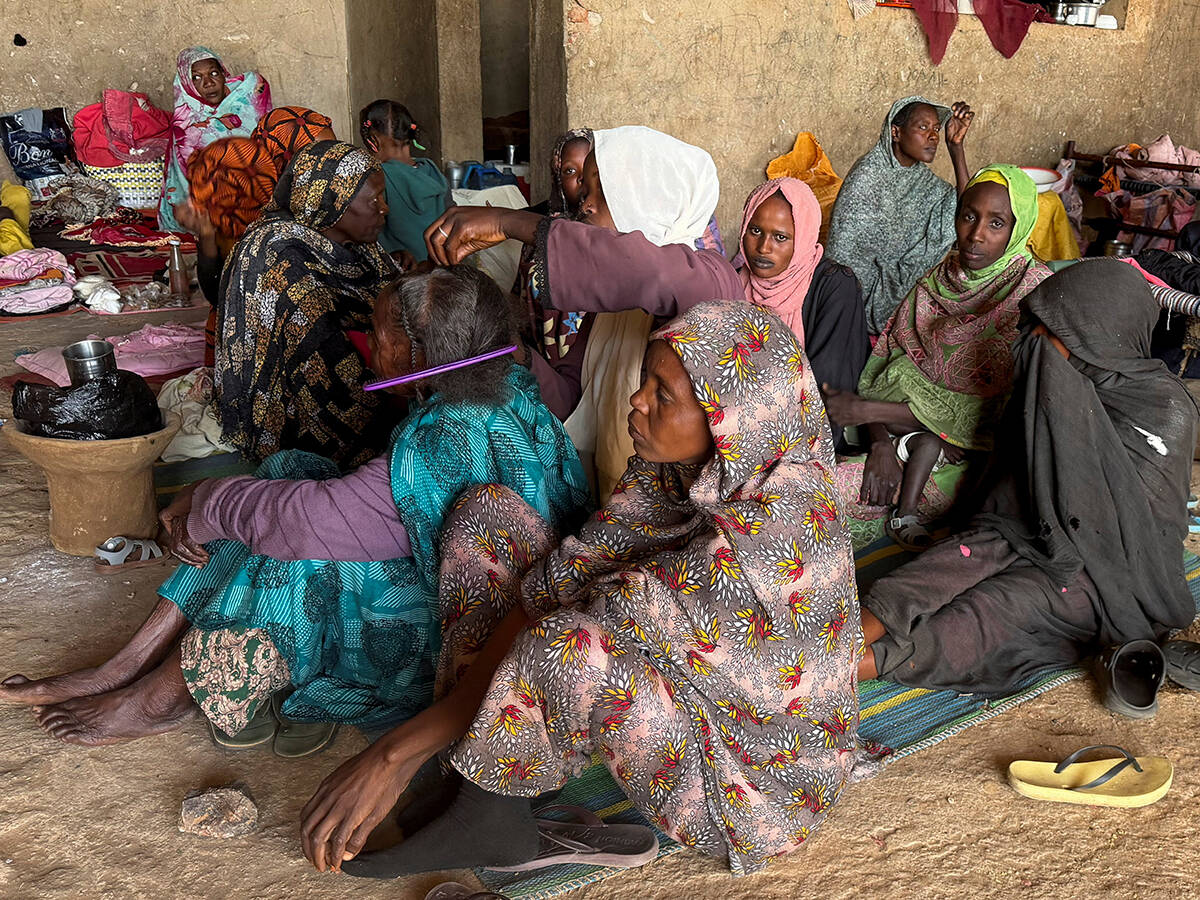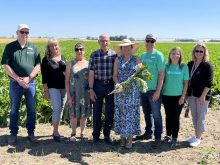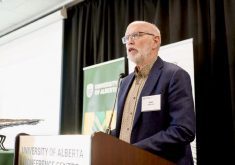What Kassi Rinas does for a living is commonplace, but the agronomist also represents the changing face of a sector where men once had all the leading roles.
“My favourite part of the job is being a part of the farmer’s operation from crop planning all winter to putting seed in the ground, spraying it and taking it off in the fall,” said Rinas, who became a sales agronomist with Nutrien Ag Solutions after earning a crop science degree last year.
“I also help with problem solving in the field, be it insect, disease or weed issues.”
Read Also

‘Millions will die’: Foodgrains Bank faces $2.7B federal funding threat
Foodgrains Bank warns $2.7B aid cut triggers a humanitarian crisis, risking global hunger relief and 40 per cent of its funding.
She was a presenter at a recent Ag for Life online workshop aimed at showing young women in grades 9 to 12 (and those taking a post-secondary program) that there are host of ag STEM careers – those in science, technology, engineering or math.
“Women make up less than 25 per cent of the people who are employed in STEM careers,” said Irena Ceko, marketing coordinator with Ag for Life, a Calgary-based non-profit focused on educating youth about the agriculture and food sectors.
“We wanted to provide some support and opportunity, especially for young women who are trying to figure out their paths and their passion. We developed this opportunity for them to network, connect with others in the industry and see if there’s anything in agriculture that sparks interest for them.”
That spark came early for Rinas, who grew up on a grain farm near Busby.
“This is where my passion for everything agriculture began and has since intensified,” she wrote in an email. “When I’m not working at Nutrien, I’m at the farm helping out, especially at seeding and harvest.”
Her message to young women is that there are a host of opportunities.
“There are more and more women coming to terms with the fact that we can work, and we do belong, in the agriculture industry,” said Rinas, who started as a crop scout for Nutrien while attending the University of Alberta.
“We are smart and detail-oriented, making us great farmers. I strongly believe women are capable of doing everything men can do on the farm.”
The ag sector has opportunities for those seeking a career that’s interesting, challenging and rewarding, she added.
“Agriculture is constantly evolving and advancing as technology gets better. It’s an exciting industry to work in. Agriculture is also a very stable industry to work in and there is always a selection of jobs available.”
The online workshop was held earlier this month but Ag for Life is planning to hold two per year (in March and November) and has created a website (feedyourfuturecareer.ca) with a number of resources.
The latter includes a workbook that looks at STEM career options, helps find ones that fit the individual, and lists degree and diploma programs in Alberta.
“It’s all about self-development, self-exploration and finding that perfect fit for yourself, while exploring different roles and connecting with different industry professionals,” said Ceko.
The website (as well as agricultureforlife.ca/careers-in-ag) offers profiles of people and their agricultural careers.
A key message is that there are many options.
“Agriculture is such a vast field. You could be a chemist, you could be a biologist, you could be a veterinarian, there are roles in automation,” said Ceko.
“Technology is a really big part of agriculture. So here are a lot of career opportunities and really exciting roles for women to step into. It goes well beyond farming and ranching, especially in today’s world.”
Holding the workshops online makes it easier for people to attend but the organizers have also tried to create networking opportunities.
“One of my favourite parts of the whole networking event is the whole section of the day that is devoted to people asking questions,” said Ceko.
But perhaps the biggest message is that the door is open.
“It’s important for women to encourage each other that they can do it,” said Rinas. “It can be intimidating to get into as historically, it was a male-dominated industry.
“But from my experience, if you know what you’re talking about and show care and passion for what you do, farmers will respect you whether you’re a man or a woman.”
















